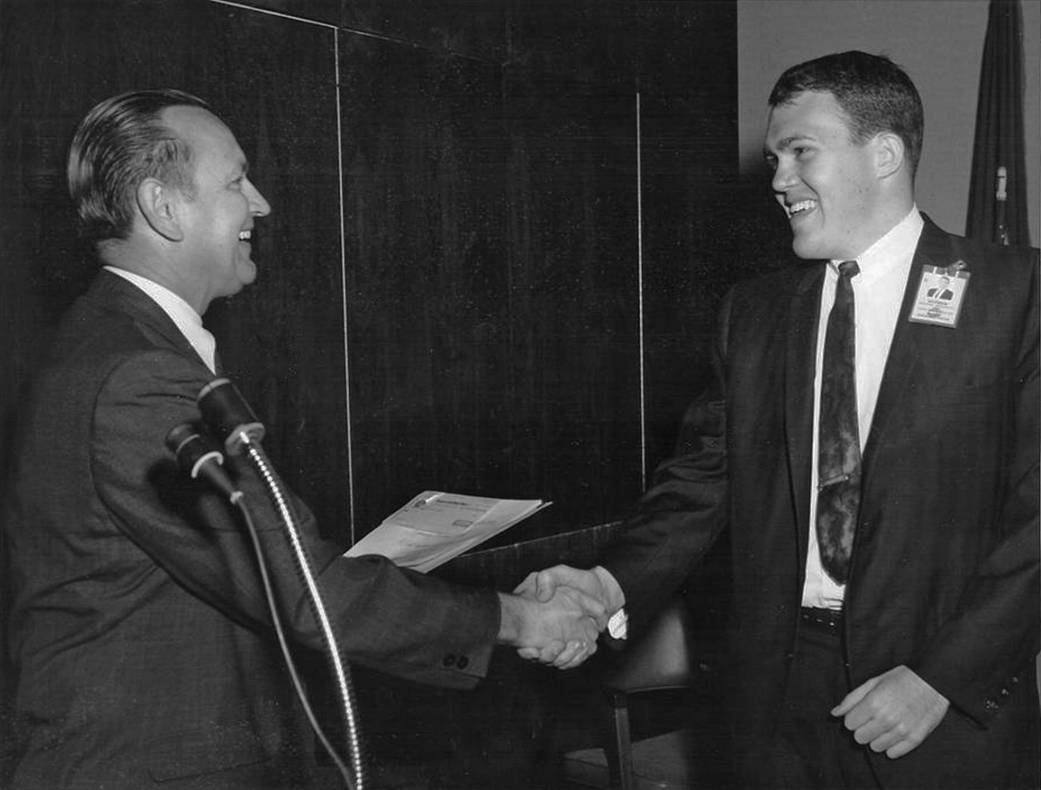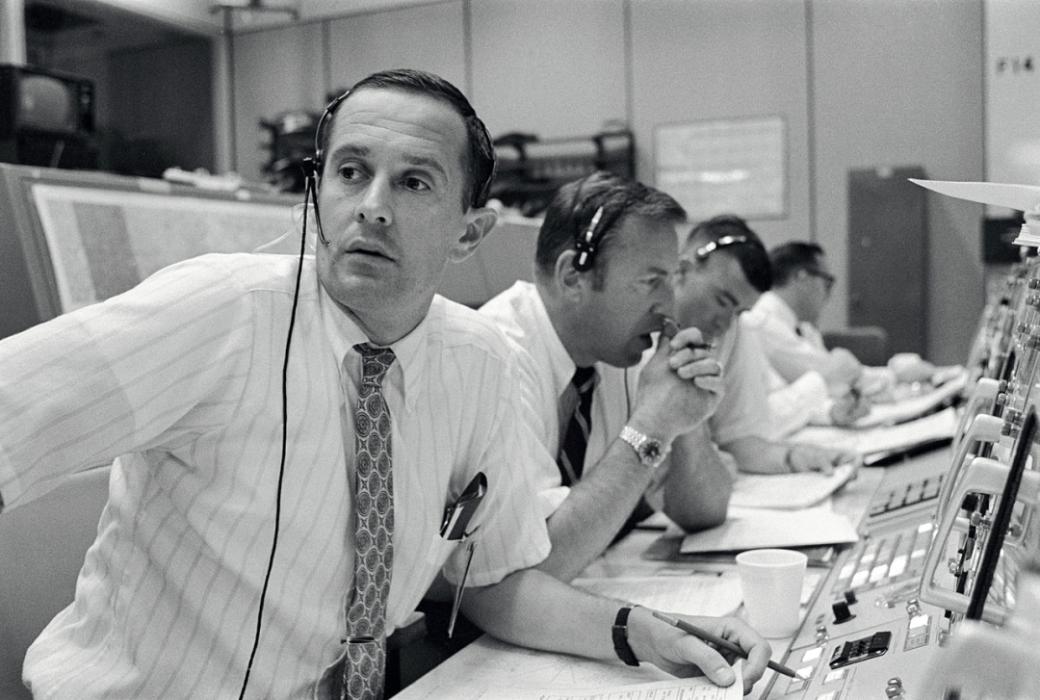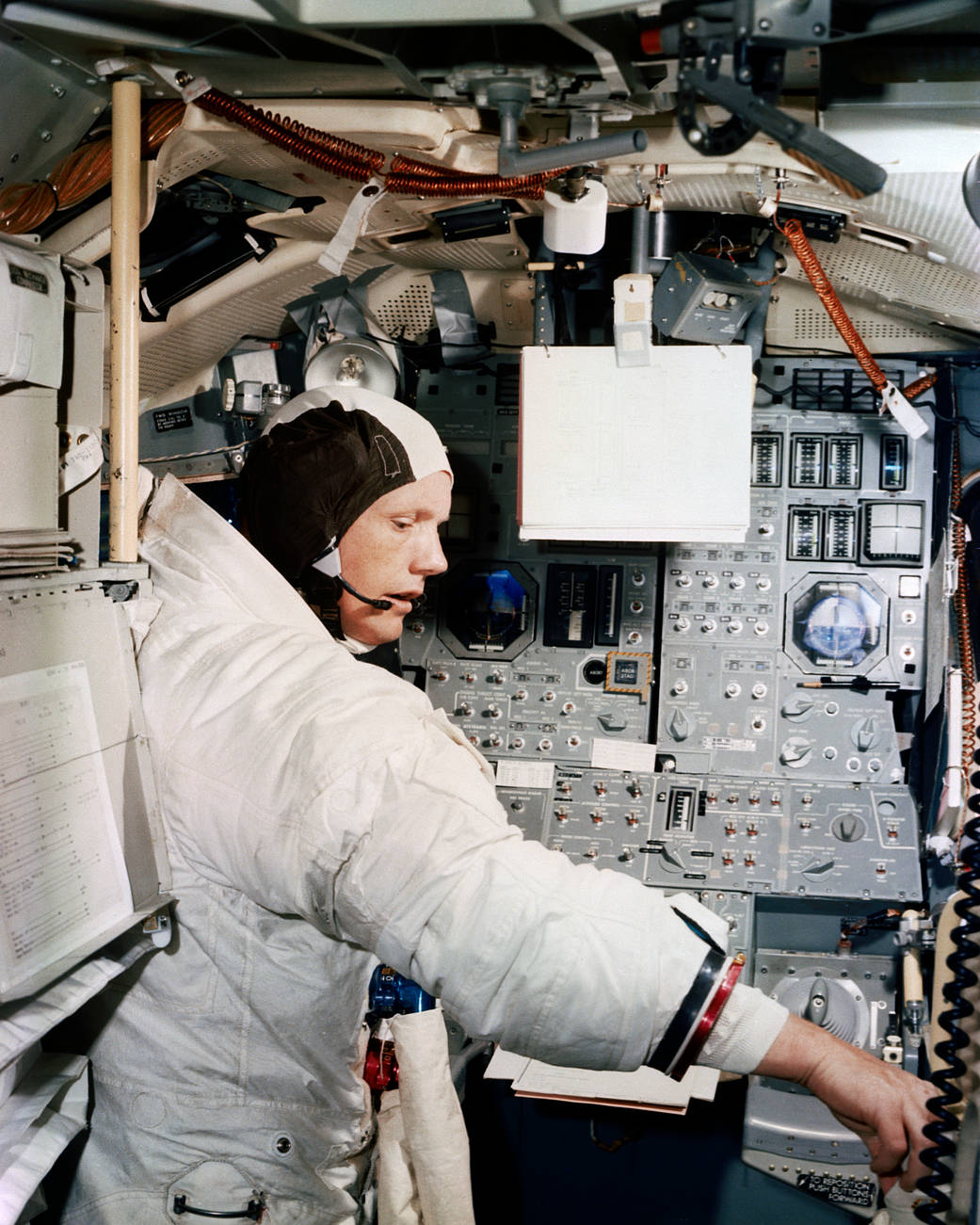A few years ago, a man named Jack Garman passed away. You might not have heard of him, but he had a pivotal role to play in the Apollo 11 lunar landing. And it culminated in a single word that meant the landing could go ahead.
Back in 1969, John “Jack” Garman was working at NASA’s Mission Control Center at the Johnson Space Center in Houston, Texas. He was a computer engineer, involved in making sure the computer that ran the spacecraft worked as intended.
This computer was called the Apollo Guidance Computer (AGC). It was used by the astronauts to navigate and control the spacecraft, using a rudimentary number display and keyboard called a DSKY. They would input controls on this and the spacecraft would respond.
But during the landing attempt on July 20, with Neil Armstrong and Buzz Aldrin on board the lunar lander, something went wrong. An error mode flashed up on the AGC, called a 1202 alarm, as they were descending to the surface. For a few seconds, no one knew what to do, putting the mission in jeopardy.

Jack Garman, pictured right, worked at NASA from 1966 to 2000.
Image credit: NASA
“It was very Rube Goldberg but it worked,” Jack Garman told me back in 2013, when I interviewed him for All About History magazine. “It was strange, different, to have a system, a vehicle, that was run by computer. I mean today even our cars are run by computers, but back then almost all the systems were analogue.”
The AGC was designed to display an alarm when the computers got overloaded. The 1202 was one of those alarms, one of many. It meant that mission’s guidance computers were struggling with the amount of data they were receiving, caused by a switch being in the wrong position.
But when the astronauts reported that it kept popping up during the descent, nerves started to fray, as no one was quite sure what it meant.
“I tell you, my heart hit the floor,” Charlie Duke, who was responsible for talking between the crew and mission control at NASA, told the New York Times in 2016.

Charlie Duke, left, was responsible for keeping in contact with the crew during the mission.
Image credit: NASA
Well, it turns out someone did know the cause of the alarm. Jack Garman, on the advice of Gene Kranz – one of the flight directors for the mission, famed for his role in Apollo 13 – had fastidiously studied all the different error codes.
During a simulated landing, a 1202 alarm caused the mission to be aborted. Kranz had been furious and asked Garman to study every single possible program alarm that could happen. “I went and studied up on all the alarms, every one of them, and I wrote a little cheat sheet,” said Garman.
When Aldrin brought up the issue of the 1202 alarm during the descent, it took several seconds for that same alarm to register back at mission control. They then needed about 10 seconds or so to respond, said Garman, meaning there was probably about 20 seconds in total for the crew to get a response. And every second was vital during the landing.
“We know it’s one of the reasons that Armstrong lost track of where he was, because he wasn’t looking out the window,” he said. “They didn’t know where they landed for sure for quite a while after they landed, probably largely due to the disturbing of these program alarms.”
So during those vital seconds in mission control, here’s what happened. The call came down from Aldrin, and then Garman’s boss, Steve Bales, quickly spoke to his team to work out what was going on. Garman, with his cheat sheet in hand, instantly came back with a response – there was nothing to worry about.

Armstrong infamously lost track of where they were during the descent, ending up with just seconds of fuel to spare at touchdown.
Image credit: NASA
This enabled Bales to give the call over the radio that everything could go ahead. These are known as go/no-go decisions, which you’ll hear if you ever watch a rocket launch or have seen Hidden Figures. They run through each team over the radio, with each reporting back with either “Go” or rarely a “No Go” if something is wrong.
On this occasion, the answer was simple. A single word that meant the landing could happen. “Go”.
The event was so important that Bales was actually awarded a US Presidential Medal of Freedom on behalf of his team for making the decision. Garman, though, is widely regarded in space circles as being the one who made the call possible. He passed away on September 20, 2016, at the age of 72, but his importance is unlikely to be forgotten any time soon.
“Sad to hear of the passing of Jack Garman,” said Wayne Hale, a former flight director and shuttle program manager, noted CollectSpace. “He saved the first Moon landing, in case you didn’t know.”
Thanks to Garman’s quick thinking, the simple word “go” meant that humans landed on the Moon on July 20, 1969. Hopefully, when we next go to the Moon in 2025, our computers might be a little bit more prepared to deal with what’s thrown at them.
An earlier version of this article was published in 2018.
Source Link: The First Moon Landing Hinged On A Single Word To Save It From Disaster